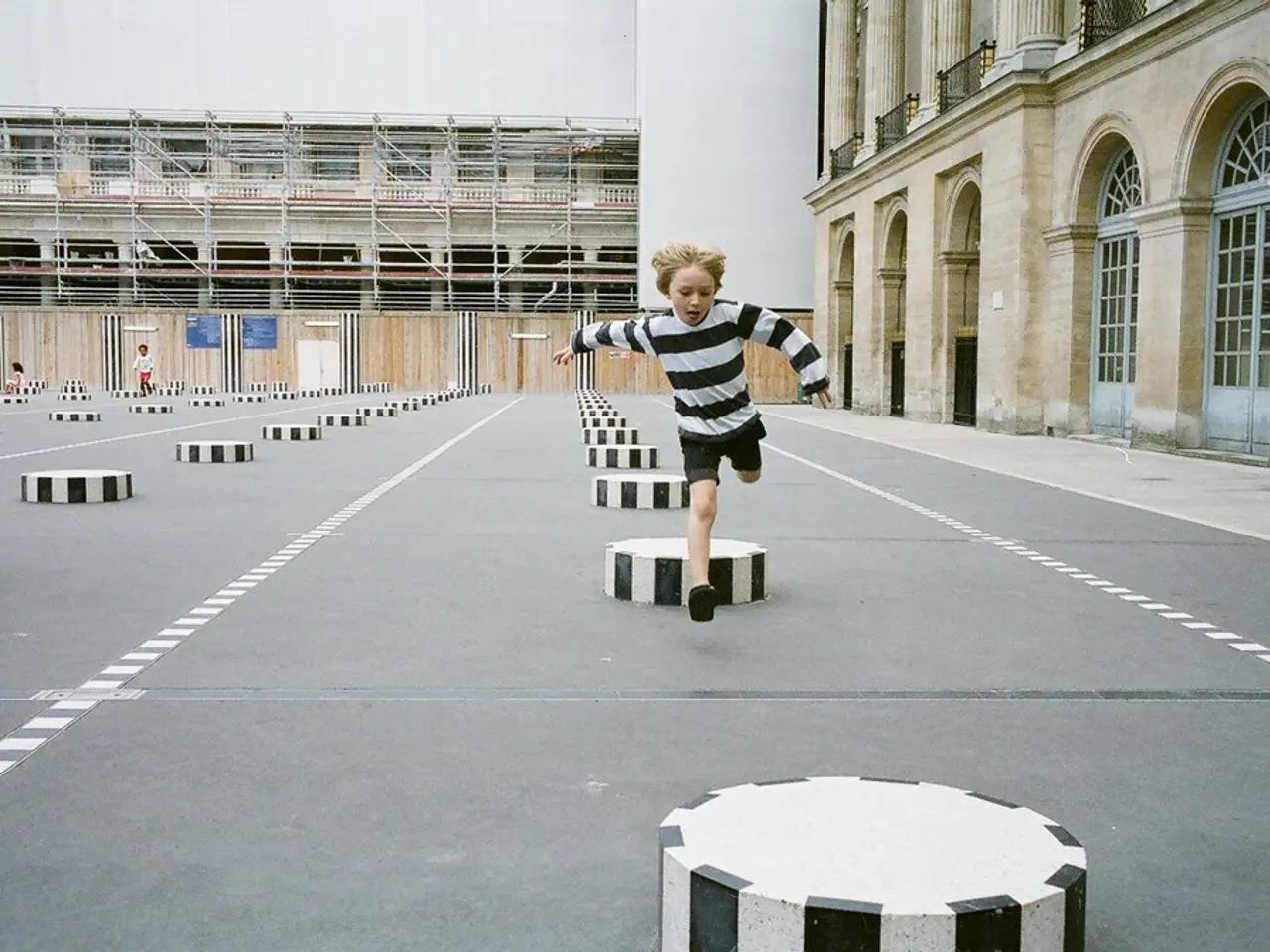Construction of an accessible sports complex for the new school receives community backing
In the heart of Mecklenburg-Vorpommern, construction work for a new inclusive school campus is currently in full swing. The project, which is expected to accommodate over 700 students from first to tenth grade, is set to welcome its first classes for the school year 2028/2029.
On August 29, 2025, Christian Pegel, Minister of the Interior and Construction, handed over the funding decision for a new sports hall as part of this ambitious project. The construction of the sports hall and its outdoor facilities will be supported by eight million euros from the European Fund for Regional Development (EFRE).
The modern sports hall will span approximately 24 by 45 meters, divisible into three equal parts. It will be equipped with barrier-free access, ensuring inclusivity for all students.
At the heart of the sports hall's eco-friendly design is the use of geothermal piles. A total of 333 piles, each up to 12 meters deep, will be drilled for the construction. Two-thirds of these piles will be activated geothermally, contributing to the environmentally friendly heating and cooling of the building.
Plastic tubes will be woven into steel cages for the geothermal piles, which will be placed in boreholes and concreted in. In addition, a heat pump and a photovoltaic system will also be part of the heating system, further enhancing the building's sustainability.
The majority of heat generation will be provided by the city's district heating, ensuring a balanced and efficient energy solution. The campus, which includes a three-story primary school, a 2.5-story regional school, a cafeteria, a kindergarten, and extensive outdoor facilities, will also benefit from an additional 29 million euros in urban development funding.
Two of the six changing rooms are planned specifically for wheelchair users, reflecting the campus's commitment to inclusivity. Earth excavation and infrastructure work for media and basic lines are underway, with drilling work for pile foundation and geothermal energy set to follow.
As the project progresses, the community of Greifswald eagerly awaits the completion of this innovative and sustainable educational campus. The new facilities are set to provide an inspiring environment for future generations of students, fostering their growth and development in a modern, accessible, and eco-friendly setting.
Read also:
- Impact of Alcohol on the Human Body: Nine Aspects of Health Alteration Due to Alcohol Consumption
- Understanding the Concept of Obesity
- Lu Shiow-yen's Challenging Position as Chair of the Chinese Nationalist Party (KMT) Under Scrutiny in Donovan's Analysis
- Tough choices on August 13, 2025 for those born under Aquarius? Consider the advantages and disadvantages to gain guidance







